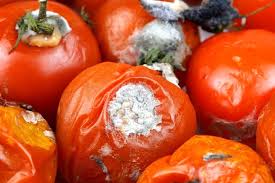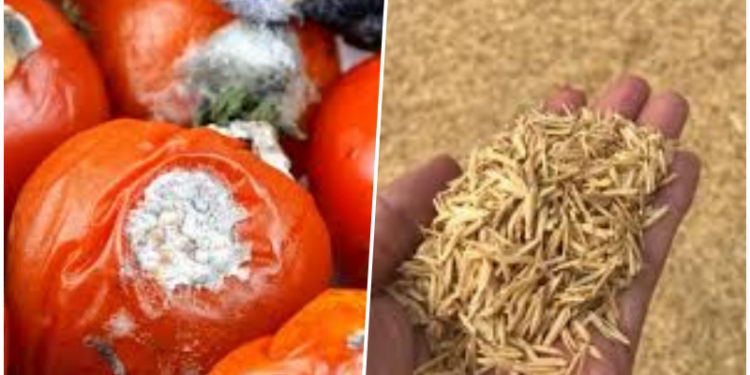- Many Nigerians resort to eating rotten, expired foods as high cost of goods takes toll on them
- NBS releases report, says Nigerian inflation rate hits 31.70%
- Annual Food inflation rate also hits 37.92% as citizens scamper for survival
Nigeria is currently on the edge as many citizens are said to be living in very dire condition due largely to the escalating cost of living across the country.
WITHIN NIGERIA findings show that those caught up in the web of skyrocketing price of food and other essential commodities are said to be living or and feeding on either rejected and rotten foods.
Our reporter who visited some of the areas in South East zone explained that due largely to biting hardship, many Nigerians have resorted to eating either rotten or expired foods.
According to our findings, prices of many food items have continued to go high even as even as millions of Nigerians continue to live in abject poverty.
However, at Adani rice market in Uzo-Uwani local government, some women were seen collecting rice chaffs which were either tasteless or have any seed inside.
Before now, the said chaffs were left for free ranged chickens or and goats which go there to feed themselves to their fill.
But today, due to the soaring hardship in the land, the situation has changed.
One of the women who spoke to WITHIN NIGERIA under anonymity said she started collecting the chaff and dirty food items after her family could no longer afford the skyrocketing price of food stuffs in the market.
” I started this collection of dirty and rice chaffs after my husband lost his job in one of the private sectors here. We could no longer afford to buy food stuffs at this soaring cost.”
Asked how she processes the dirty and rice chaffs to its edible state, the woman told our reporter that, ” when I get home, I will make warm water and use it to wash the dirty rice. As for the chaff, we will cook it like that because there is no other thing we do about it.”
WITHIN NIGERIA gathered that as at January, a bushel of rice which contains 120 milk cups was sold at N 18,000 is now being sold at N 25,000 and still rising.
In any case, at Ikpa commodity market, Nsukka, some women were also seen picking rotten tomatoes instead fresh clean ones.
One of retailers who gave her name as Janet told our reporter that a basket of tomatoes is now N60,000 against N25,000 it was sold before February.

Further checks by our reporter also revealed that four seeds for f tomatoes were being displayed at N500 thereby pushing many customers to scramble for rotten and broken ones which were relatively cheaper.
NBS releases inflation rate
On Friday, March 15, National Bureau of Statistics, NBS released a statement explaining the level of inflation in the country.
According to NBS, Nigeria’s annual inflation rate rose to 31.70 per cent in February from 29.90 per cent in January, the National Bureau of Statistics (NBS) said on Friday.
The statistics office said the February 2024 headline inflation rate showed an increase of 1.80 per cent compared to the January 2024 headline inflation rate.
The NBS said on a year-on-year basis, the headline inflation rate was 9.79 per cent points higher than the rate recorded in February 2023, which was 21.91 per cent.
“This shows that the headline inflation rate (year-on-year basis) increased in the month of February 2024 when compared to the same month in the preceding year (i.e., February 2023),” it said.
Furthermore, the bureau said on a month-on-month basis, the headline inflation rate in February 2024 was 3.12 per cent, which was 0.48 per cent higher than the rate recorded in January 2024 (2.64 per cent).
This, it said, means that in February 2024, the rate of increase in the average price level is more than the rate of increase in the average price level in January 2024.
According to the report, the food inflation rate in February 2024 quickened to 37.92 per cent on a year-on-year basis, which was 13.57 per cent points higher than the rate recorded in February 2023 (24.35 per cent).
WITHIN NIGERIA gathered that in recent years, food prices have been on the rise across Nigeria. The situation deteriorated due to the impact of government policies such as the removal of subsidies on petrol, among others.
Our findings equally showed that the upward trend in the prices of these staples and other products has weakened the purchasing power of many citizens, making it difficult for many households in the country to afford daily meals.
Nigeria’s naira has tumbled across both the official and unofficial markets on several occasions in recent times amidst an increased forex demand and a significant spike in the prices of goods and services across the country.
A breakdown of the NBS report showed that the contributions of items on the divisional year-on-year level to the increase in the headline index are food and non-alcoholic beverages (16.42 per cent), housing water, electricity, gas & other fuel (5.30 per cent), clothing & footwear (2.24 per cent), and transport (2.06 per cent),.
Others are furnishings, household equipment and maintenance (1.59 per cent), education (1.25 per cent), health (0.95 per cent), miscellaneous goods and services (0.53 per cent), restaurant & hotels (0.38 per cent), alcoholic beverage, tobacco & kola (0.34 per cent), recreation & culture (0.22 per cent) and communication (0.22 per cent.
The percentage change in the average CPI for the twelve-month ending February 2024 over the average of the CPI for the previous twelve-month period was 26.18 per cent, showing a 6.31 per cent increase compared to 19.87 per cent recorded in February 2023.
Food inflation
According to the report, the food inflation rate in February 2024 was 37.92 per cent on a year-on-year basis, which was 13.57 per cent points higher compared to the rate recorded in February 2023 (24.35 per cent).
The bureau said the rise in food inflation yearly was caused by increased prices of bread and cereals, potatoes, yam and other tubers, fish, oil and fat, meat, fruit, coffee, tea, and cocoa.
“On a month-on-month basis, the Food inflation rate in February 2024 was 3.79 per cent this was 0.58 per cent higher compared to the rate recorded in January 2024 (3.21 per cent).”
It explained that the rise in food inflation on a Month-on-Month basis was caused by a rise in the rate of increase in the average prices of bread and cereals, potatoes, yam & other tubers, fish, coffee, tea, and cocoa.
“The average annual rate of Food inflation for the twelve months ending February 2024 over the previous twelve-month average was 30.07 per cent, which was a 7.95 per cent points increase from the average annual rate of change recorded in February 2023(22.12 per cent),” the report said.




Discussion about this post